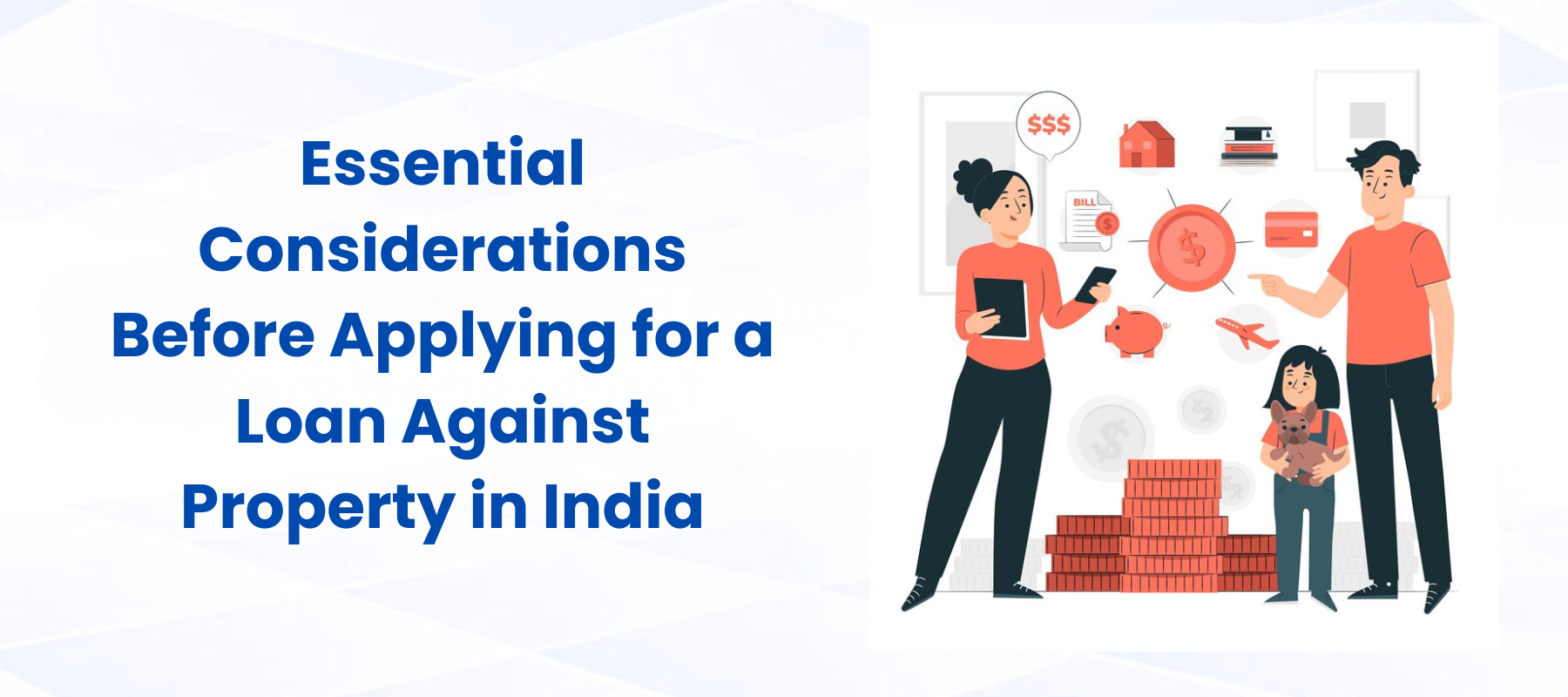Special Offers




Special Offers




04-Apr-2025 | Loan Against Property

A Loan Against Property (LAP) is a secured loan where you pledge your residential or commercial property as collateral to avail funds. This financial instrument is popular in India due to its relatively lower interest rates and higher loan amounts compared to unsecured loans. However, before proceeding with a LAP, it's crucial to evaluate several factors to ensure a smooth borrowing experience and safeguard your valuable asset.
1. Assess Your Eligibility Criteria
Lenders have specific eligibility requirements for LAP applicants. Common criteria include:
Age: Typically, salaried individuals should be between 24 to 60 years, while self-employed applicants may have an upper age limit of 60 to 65 years at the time of loan maturity.
Income Stability: A consistent and verifiable income source is essential. Salaried individuals must demonstrate steady employment, whereas self-employed applicants should show stable business income.
Credit Score: A healthy credit score (usually 750 and above) enhances your loan approval chances and may secure better interest rates
Property Ownership: You must have clear and marketable title deeds for the property being pledged.
Each lender may have additional criteria, so it's advisable to review their specific requirements before applying.
2. Understand the Loan-to-Value (LTV) Ratio
The LTV ratio determines the maximum loan amount you can avail against your property's market value. In India, lenders typically offer:
Up to 60% of the property's value for loan amounts up to ₹1 crore.
This ratio varies among financial institutions and is influenced by factors such as property type, location, and condition.
3. Evaluate Interest Rates and Loan Tenure
Interest rates for LAPs are generally lower than unsecured loans but can vary based on:
Fixed vs. Floating Rates: Fixed rates remain constant throughout the tenure, while floating rates fluctuate based on market conditions.
Loan Tenure: Longer tenures may result in lower EMIs but could lead to higher overall interest payments.
For instance, some lenders offer LAPs with tenures up to 15 years, allowing borrowers to choose a repayment period that aligns with their financial capacity.
4. Be Aware of Fees and Additional Charges
Beyond the principal and interest, LAPs may involve various fees, including:
Processing Fees: Charged for loan application processing
Prepayment Penalties: Fees for repaying the loan before the tenure ends, applicable in certain conditions
Legal and Valuation Charges: Costs associated with property valuation and legal verification
Understanding these charges is essential to accurately assess the total cost of borrowing.
5. Prepare Necessary Documentation
Proper documentation is critical for a successful LAP application. Commonly required documents include:
Identity Proof: PAN card, Aadhaar card, passport, etc.
Address Proof: Utility bills, rental agreement, etc.
Income Proof:
Salaried Individuals: Latest salary slips, Form 16, bank statements.
Self-Employed Individuals: Audited financial statements, Income Tax Returns, bank statements.
Property Documents: Title deed, approved building plan, property tax receipts.
Ensuring all documents are accurate and up-to-date can expedite the loan approval process.
Conclusion
Applying for a Loan Against Property in India requires careful consideration of eligibility criteria, LTV ratios, interest rates, associated fees, and thorough documentation. By meticulously evaluating these factors and aligning them with your financial goals and repayment capacity, you can make informed decisions that protect your property and ensure a favorable borrowing experience.